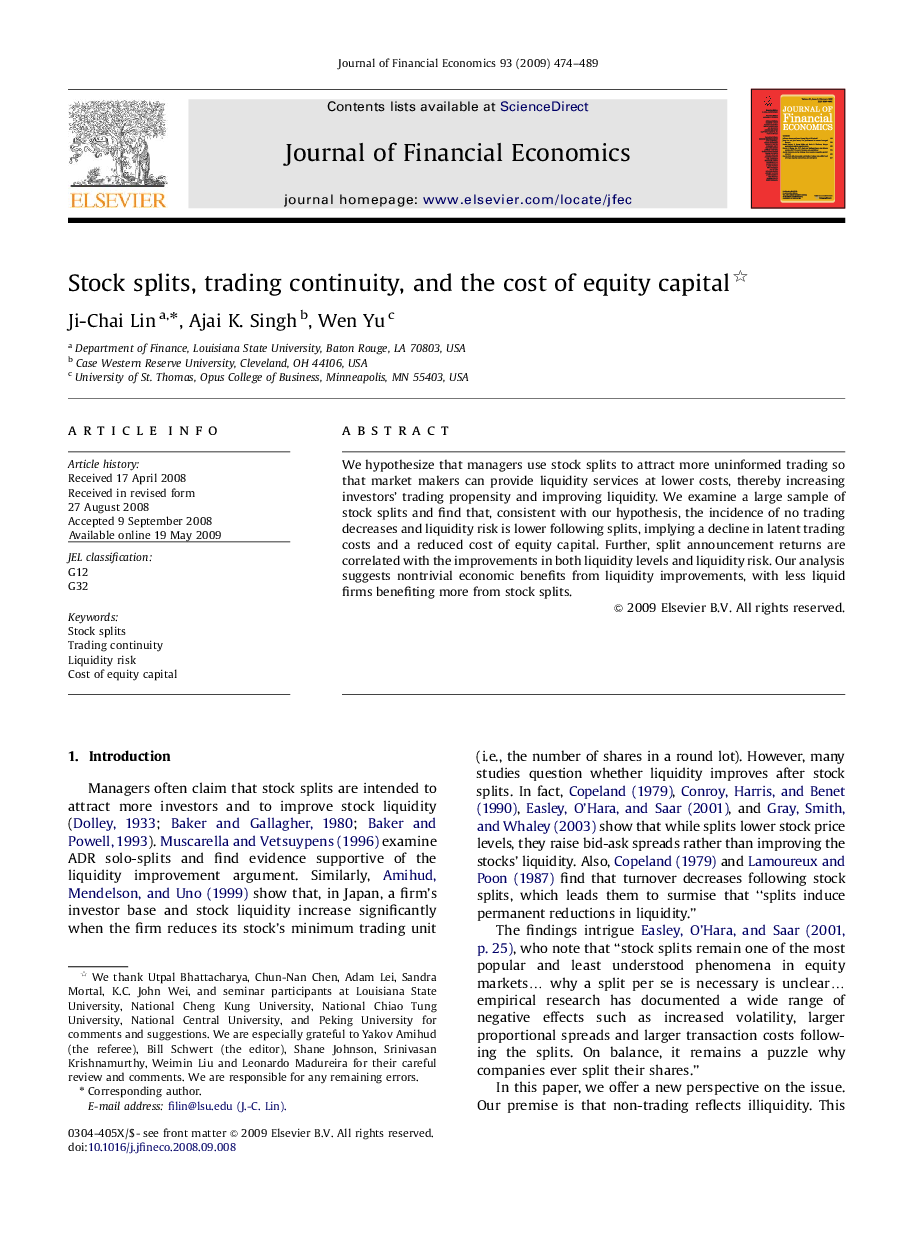| Article ID | Journal | Published Year | Pages | File Type |
|---|---|---|---|---|
| 959926 | Journal of Financial Economics | 2009 | 16 Pages |
Abstract
We hypothesize that managers use stock splits to attract more uninformed trading so that market makers can provide liquidity services at lower costs, thereby increasing investors’ trading propensity and improving liquidity. We examine a large sample of stock splits and find that, consistent with our hypothesis, the incidence of no trading decreases and liquidity risk is lower following splits, implying a decline in latent trading costs and a reduced cost of equity capital. Further, split announcement returns are correlated with the improvements in both liquidity levels and liquidity risk. Our analysis suggests nontrivial economic benefits from liquidity improvements, with less liquid firms benefiting more from stock splits.
Related Topics
Social Sciences and Humanities
Business, Management and Accounting
Accounting
Authors
Ji-Chai Lin, Ajai K. Singh, Wen Yu,
